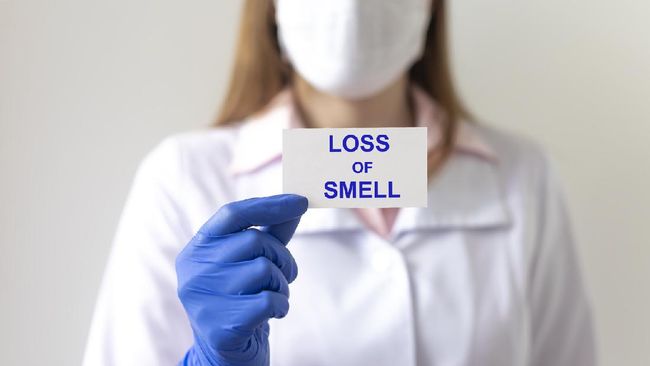Jakarta, CNN Indonesia —
Anosmia or loss of the ability to sense smell is one of the symptoms experienced by Covid-19 sufferers. Anosmia is reported to be a symptom that is commonly found in Covid-19 sufferers, in addition to fever, dry cough, and fatigue.
What is anosmia?
As reported HealthlineAnosmia is a partial or complete loss of the sense of smell. This loss may be temporary or permanent.
Common conditions that irritate the lining of the nose, such as allergies or colds, can cause temporary anosmia.
More serious conditions that can affect the brain or nerves, such as a brain tumor or head trauma, can even cause permanent loss of smell. Old age also sometimes causes anosmia.
Anosmia is usually not serious, but it can have a major impact on a person’s quality of life.
People with anosmia may not be able to taste food completely and may lose interest in eating. This can lead to weight loss or malnutrition.
Anosmia can also cause depression because it can interfere with a person’s ability to smell or taste delicious food.
The difference between anosmia and the common cold
In addition to Covid-19, loss of the sense of smell or anosmia can also be experienced by flu or cold patients. Then, what is the difference between anosmia in Covid-19 and the common cold?
A number of studies have shown that most Covid-19 patients have anosmia. Not only in symptomatic patients, loss of the sense of smell also occurs in asymptomatic patients.
In the case of Covid-19, the SARS-CoV-2 virus attacks the sense of smell and temporarily blocks its vital functions.
Loss and reduced function of smell can also be felt by people who have flu or colds.
A study published in the journal Rhinology looked at the difference between anosmia in Covid-19 and the common cold. Researchers tested the ability to smell and taste on 10 Covid-19 patients, 10 flu or cold patients, and 10 healthy people.
See further explanation of the difference between anosmia and the common cold and the treatment of anosmia on the next page.
The difference between anosmia and the common cold
–
– .


